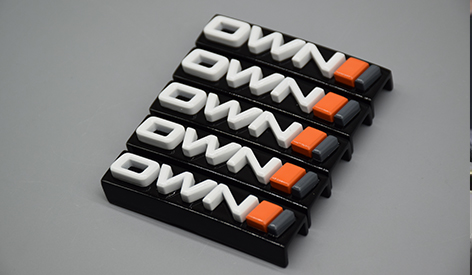Views: 4 Author: Site Editor Publish Time: 2024-05-07 Origin: Site









Choosing the right materials is a critical decision in prototype plastic manufacturing, influencing product performance, durability, and cost-effectiveness. This technical article is a comprehensive guide on navigating the myriad options available for prototype plastic materials, focusing on key considerations, material properties, and selection strategies to ensure optimal outcomes in prototyping processes.
Understanding Prototype Plastic Materials: A Multifaceted Spectrum
The world of prototype plastic materials encompasses a diverse range of options, each with unique characteristics and suitability for specific applications. Key factors to consider when selecting prototype plastic materials include:
1. Material Properties: Evaluate properties such as mechanical strength, thermal resistance, chemical compatibility, electrical conductivity, and surface finish requirements based on the intended application.
2. Cost Considerations: Balance performance requirements with budget constraints, considering material costs, processing expenses, and overall project affordability.
3. Manufacturability: Assess ease of processing, moldability, compatibility with molding techniques (e.g., injection molding, 3D printing), and suitability for intricate part geometries.
4. Environmental Impact: Consider sustainability aspects, recyclability, and eco-friendly options to align with corporate sustainability goals and regulatory requirements.
Popular Prototype Plastic Materials: Unveiling the Options
1. ABS (Acrylonitrile Butadiene Styrene): Known for its impact resistance, versatility, and affordability, ABS is suitable for a wide range of applications, including automotive parts, consumer goods, and electronics.
2. Polypropylene (PP): With excellent chemical resistance and low density, PP is ideal for applications requiring resistance to acids, alkalis, and moisture, such as packaging, automotive components, and medical devices.
3. Polycarbonate (PC): Offering high impact strength, optical clarity, and heat resistance, PC is favored for applications demanding transparency, such as lenses, safety equipment, and electronic housings.
4. Nylon (Polyamide): Known for its toughness, abrasion resistance, and flexibility, nylon finds applications in gears, bearings, automotive components, and industrial equipment.
5. Polyethylene (PE): Available in various forms (HDPE, LDPE, UHMWPE), polyethylene offers excellent chemical resistance, low friction, and durability, making it suitable for containers, pipes, and automotive parts.
Selecting the Ideal Prototype Plastic Material: Strategies for Success
1. Define Requirements: Clearly outline performance criteria, environmental conditions, regulatory standards, and end-user expectations to identify material needs.
2. Material Testing: Conduct material testing, prototyping trials, and performance evaluations to assess suitability and verify material properties under relevant conditions.
3. Collaborate with Suppliers: Engage with reputable material suppliers, leverage their expertise, request material data sheets, and explore customized material formulations if necessary.
4. Consider Future Needs: Anticipate scalability, future modifications, and potential material upgrades to ensure long-term viability and adaptability of chosen materials.
Conclusion: Optimizing Prototype Plastic Material Selection for Success
The selection of prototype plastic materials is a nuanced process that requires careful consideration of technical, financial, and sustainability aspects. By understanding material properties, assessing application requirements, leveraging industry expertise, and prioritizing future scalability, organizations can make informed decisions and unlock the full potential of prototype plastic materials in advancing innovation, accelerating product development, and delivering exceptional end-user experiences.
Jucheng precision to provide you with plastic prototype customization services, no minimum quantity.
Jucheng Precision-manufactured plastic prototypes is a cornerstone of innovation and product development. At Jucheng Precision, we excel in crafting prototypes that meet the highest standards of precision and functionality. Our expertise in plastic molding and assembly ensures that every component fits seamlessly, showcasing the potential of your design. With state-of-the-art technology and meticulous attention to detail, we bring your ideas to life with prototypes that not only look great but also perform flawlessly. Whether you need a single prototype or a small batch, our team is dedicated to delivering excellence in every piece we assemble. Trust Jucheng Precision for precision, quality, and innovation in plastic prototype assembly.